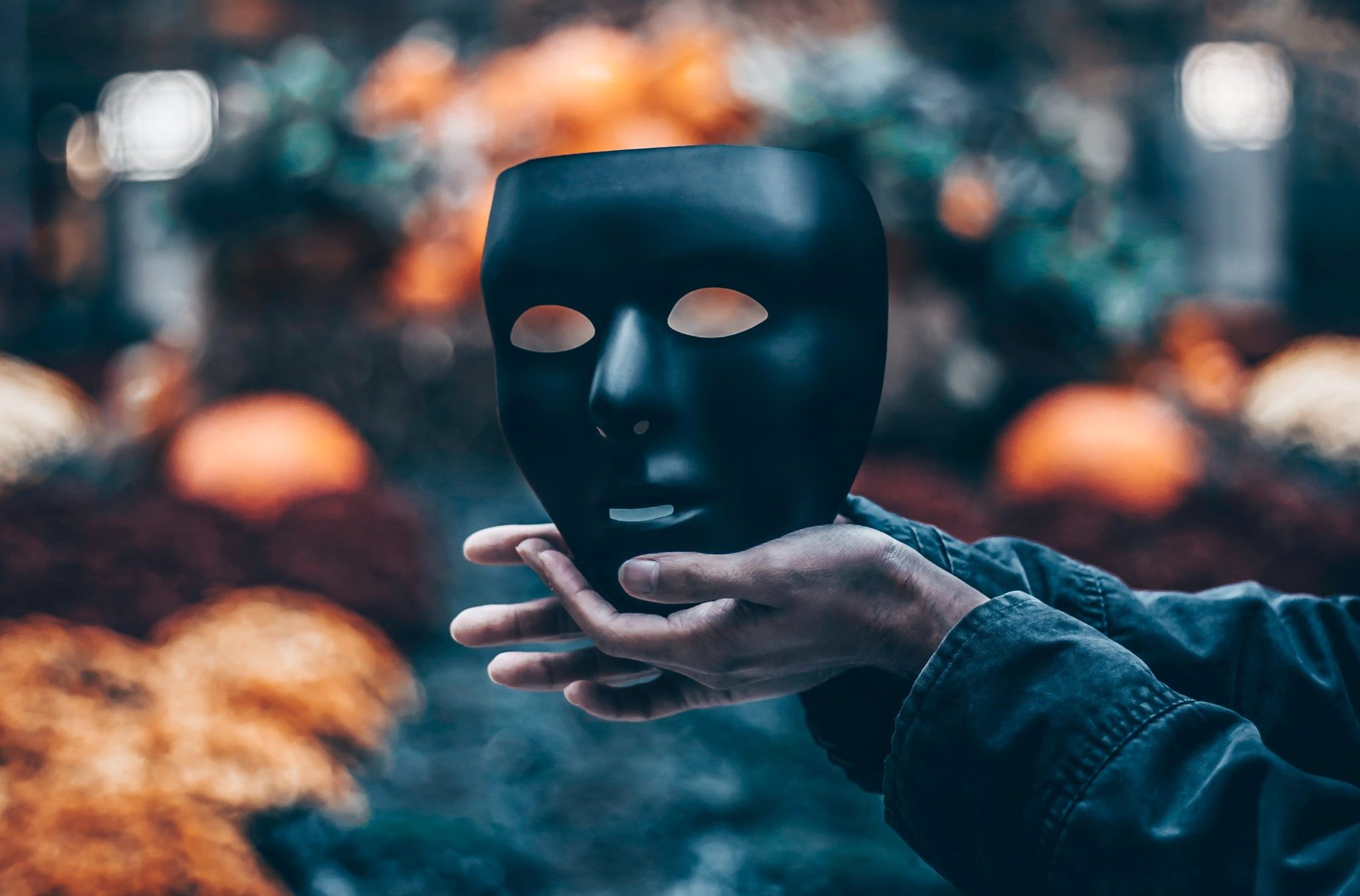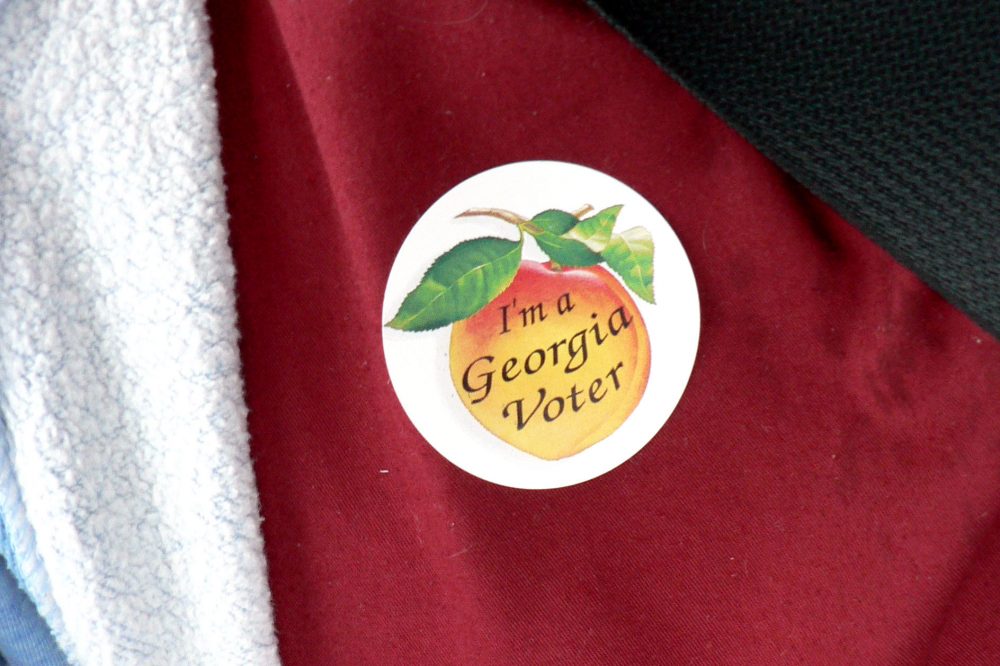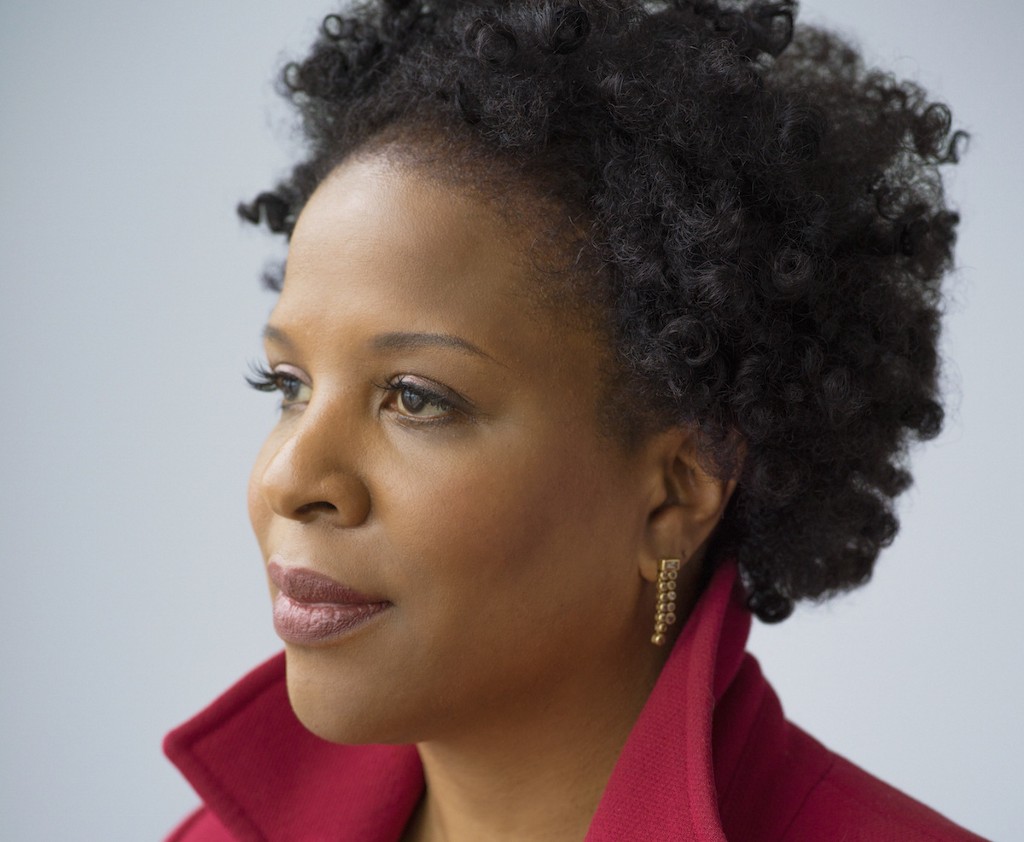Interviews
Is It Appropriation or Appreciation When a White Man Self-Identifies as Black?
Chinelo Okparanta skewers performative allyship and white liberalism in her novel "Harry Sylvester Bird"

Narrated by a young white man who identifies as a Black African, Harry Sylvester Bird adopts a layered approach to racial identity as a contested arena of desire, power, and belonging. The titular protagonist’s self-identification as a Black African, and his appropriation of Black American and African cultures, exposes the race privilege and misplaced victimhood that underlie the apparent sympathies of white liberalism. At the same time, the novel’s exploration of Harry’s perspective produces a degree of sympathy for him, and an understanding of the effects of the racism, xenophobia, and paranoia of his family, which reflects the social and political dysfunctions of contemporary American society.
A Nigerian-born writer who has lived in the U.S. since the age of ten, Chinelo Okparanta brings sharp and critical insight to her depictions of the diverse impulses and conflicts that exist within individuals as well as cultures. Her debut short story collection Happiness, Like Water explored the lives of lesbian women in Nigeria, and the experiences of Nigerian immigrants in the U.S., among other themes. Her debut novel, Under the Udala Trees traced the history of Nigeria during and after the Biafran Civil War through the life of a young girl coming to terms with her sexuality. In Harry Sylvester Bird, she traces the transformations in Harry’s racial identity as he journeys from his home in Pennsylvania to Manhattan and then to Ghana, where he ironically reverts to aspects of his identity as a white man.
I spoke with Chinelo Okparanta over email about writing from a white man’s point of view and the role of well-meaning white liberalism in perpetuating racial prejudice.
Pritika Pradhan: Harry Sylvester Bird is narrated from a complex and layered point of view, that of a young white man who identifies as a Black African. What inspired you to create this character, and to narrate the book in his voice?
Chinelo Okparanta: In 2016, I was teaching a seminar at Columbia University about the ethics of writing other cultures in fiction. We read books such as Memoirs of a Geisha, The Help, The Confessions of Nat Turner, and more. We discussed why some books appeared to succeed and why others did not.
Later that year, and in the years that followed, I was living in a somewhat rural part of Pennsylvania where I had to endure quite a lot of racial discrimination, both very overt and also covert. I’ve endured racial discrimination throughout my three plus decades in the United States, but these were the years beginning in 2016, and the racial discrimination and microaggressions I was finding myself facing were far more blatant and overwhelming than I had ever experienced before. Very basic things to which some outsiders might say “No way! That didn’t happen!” I began interrogating those fascinating behaviors. If we were in fact a more racially aware society, then why were such basic acts of racism still happening? But of course, I knew that with all my thinking and theorizing and rationalizing, I could never enter the minds of these people to truly understand where they were coming from.
In all of that thinking and scrutinizing, the character of Harry arrived to me, and I decided to write about these acts through him. Many Black and immigrant readers have now read the novel and said, “Oh yeah this happened to me too! And that happened to me too!” Some of the white readers have overwhelmingly said things like, “No way! That’s a caricature!” I believe identification with the novel depends on the reader’s life experiences and what backgrounds they are coming from. If you ask a certain group of people, you’ll see that while some of the behaviors in the novel are supposedly caricature-like, they are also based on reality and are more rampant than we might like to believe. These acts of racism are still alive and well.
PP: What challenges and insights did you experience in constructing and entering Harry’s perspective?
CO: In approaching the novel, I was aware that I could not truly know a white person’s voice or write from an actual white person’s background or POV, so I was grateful when the character of Harry presented himself to me, first satirically, and then, as a person who identified as a Black African. Being a believer in the power of satire to inspire social reform, and being myself an actual Black African, I knew I could work with those two elements, so I chose to follow those two callings. Racial discrimination, microaggressions, and the way they are received by people like me are where the heart of the novel lies, and not necessarily in the fact of Harry’s original whiteness.
Harry also arrived to me with a Nigerian girlfriend, and as a Nigerian, I knew that I could do something with her character in ways that also informed his character. Harry is a satirical conglomeration of many of the types of racial insensitivities and flat-out discriminative acts that some well-meaning white Americans continue to commit, even in their apparent allyship.
If we were in fact a more racially aware society, then why were such basic acts of racism still happening?
Some readers have mentioned that at times the novel feels more borderline realistic than satirical, and I would agree, because it should! As overblown as some might find Harry’s (and his parents’) character(s) to be, I will say that their behaviors are very much based on behaviors I observed repeatedly in people enough to actually write about them, so this is a testament to the fact that we are far from a post-racial society, and a testament also to the fact that racism has reached almost satirical heights in this country! Though I understand why some would like to believe this not so, and would like to avoid the topic altogether (And, actually, I would love to avoid the topic too! But sadly, I have to live it on a daily basis.) In a sense, even when you try, you can’t even make up this stuff! All of us POC and immigrants have experienced an overwhelming number of Harry’s (and his parents’) mistreatments. And, if the spot-on nature of the book makes us uncomfortable (which I venture to say that it does for some; all effective satire should stir discomfort in the group to which the satire applies), then it’s worth it to sit with that discomfort and probe it and ask ourselves what we are going to do about it.
Which is all just to say that Harry Sylvester Bird is a sort of social experiment. Beyond the surface story that follows Harry on his journey from youth to adulthood, we might do well to ask ourselves some other important questions. For instance, what is the role of racial power in writing other cultures? Who gets away with it? Who gets rewarded for it? Who gets supported when they do it? Who doesn’t? Who gets the space to experiment in literature? Who gets to be essentially told to “stay in their lane”? What happens when a Black woman attempts to do in literature what many other (primarily white) Westerners have done in the past?
But then again, Harry Sylvester Bird is not fundamentally an appropriation novel. It is a purposeful interrogation of it. It is a questioning. It is a book that holds up a mirror to us, not just as an American society, but also as a global society. More than the above, it is a book that presents to us a snapshot of where we were in society at a very particular point in time. There’s a reason that the novel begins in 2016. As I said earlier, that year was when, at least in my experience of things, these acts of racism began to be so rampant that they were almost satirical, so blatant and overwhelming. Perhaps it was just a side effect of the Trump era? No way to be sure. But sadly, the novel is not a happy reflection of our society. It wasn’t pleasurable to write, and it won’t be pleasurable for some of us to read. And yet, perhaps the book can be an impetus for us to do better. It could be an impetus to ask ourselves: In what ways are we actually committing the offenses that we imagine ourselves above committing? In what ways are we in fact metaphorically like Harry?
PP: On the surface, Harry is a liberal who is painfully aware of racial prejudice, and yet he remains oblivious to his own race privilege in claiming the identity of a Black African. Could you tell us what this reveals about the role of well-meaning white liberalism in perpetuating racial prejudice?
CO: Harry is a character who simply speaks to the fact that sometimes awareness is not enough. All the theoretical and academic and factual knowledge is not enough. We can read books, give lectures, listen to lectures on important topics from now to Kingdom come. We can recite the knowledge gained from these in an almost verbatim, intellectual manner. But if we are fundamentally unable to apply any useful information gained and learned in our daily lives and relationships, then nothing changes. We can also get stuck defending ourselves even when we see the truth. We can also deny the reality of who we are because that reality is unpleasant or is not in line with how we would like to see ourselves. We are all guilty of this. I, too, am a work in progress. With Harry, and for many out there, awareness is simply not enough.
PP: Some of the book’s most provocative passages depict Harry’s aestheticization, even fetishization, of the beauty of “the darkest man” he met in Tanzania. What do Blackness and Africanness represent to Harry? What is at stake in him, a white American, in taking on the identity of a person of color, and of a continent of which he has limited understanding?
What is the role of racial power in writing other cultures? Who gets away with it? Who gets rewarded for it? Who gets supported when they do it? Who doesn’t?
CO: Harry is a product of his upbringing, a child of severely racist parents. He has essentially been abused by them, and one of those areas of abuse that he endures is their racism. Because, of course, we damage our children by bringing them up in a racist and hateful environment. And so, Harry’s flawed solution is to run away from whiteness altogether. It would appear that he simply sees Africanness and Blackness as an escape from his abusive past, and as a path to being a better person. He also appears to see his vehement acceptance and support of Blacks and Africans as a kind of reparation for the historical racial injustices as well as for his parents’ racial abuses toward that specific demographic of people.
But as you’ve rightly said, he has very limited understanding of racial issues and of the history of the continent as a whole, which is evident in much of his travels in Tanzania, and yet, the astonishing fact is that he actually believes himself to have this knowledge. He spouts out factual information about the history of slavery in Tanzania, he can tell you much about the animals on the safari. By the time he gets to Ghana, it becomes clear how much he really doesn’t know. And yet, he doesn’t exactly come to terms with this lack of knowledge. He still believes himself to be well-informed about a history and a people he doesn’t really know. This is essentially what makes him a problematic character: He repeatedly centers himself in the whole race discussion even as he is supposedly trying to be a good ally. The use of Harry’s POV for the novel is a direct commentary on this character flaw. Harry is definitely an empathetic character, but his is the kind of empathy that is so misguided that it winds up centering itself in the struggle.
PP: For all his professed detestation of his parents’ prejudices, Harry finds himself longing for them —ironically following his ill-fated trip to Ghana to embrace his supposed Black African identity. How did visiting Ghana and exploring the site of slavery affect his self-identification and force him to confront his whiteness?
CO: A trip to the Cape Coast Castle (dungeon) will force anybody with a conscience to mull over the weight of such a terrible historical atrocity. Harry, in a sense, comes face to face with his white self when he visits the dungeon. He is so shaken by the visit that he resorts to tears. But again, like many who visit such sites, they are shaken while they are at the site, but in the days and weeks and years that follow, some simply return to their default mentality, to their old selves. For Harry, there is something very superficial—and performative—about his allyship with “the Black Africans.” He wants to be an ally, but he doesn’t know how—and so, he resorts to these performative methods. And yet, Harry is fundamentally just another human being, so his behavior is not very much unlike the behaviors of many of us: He resorts to familiarity after all the performance fails to get him the desired results, even if he very well knows that what is familiar is not always good. His seeking of “comfort in familiarity” is what causes him to long for his parents. But then he also moves beyond that longing. It is, for him, a temporary longing. He actively seeks, instead, to follow Maryam. If there is one to follow in his quest for a better self, apparently, she is it. He is, very clearly, a young man in crisis.
PP: Towards the end, the novel stretches into the future in 2026, with Harry setting out to win back Maryam’s love even as he fears reverting to his parents’ behavior. How did these contradictory impulses shape his retrospective narrative and his growing, though incomplete, self-recognition? What effect might they have on his future journey?
CO: Harry’s contradictory impulses simply show the difficulty of climbing out of the influence of one’s upbringing and one’s past. He is, at least, sometimes aware enough to question himself and look back on his motives and to see where he might have made the wrong decision, but by the end of the novel, he is still on that journey to coming to terms with his true self. He has spent his whole life trying to escape his parents, his town, his past. But in a sense, in finally admitting that he might be becoming a version of his parents—becoming like people he so adamantly fought to be unlike—he is finally taking the first steps to confronting his true self. It seems counterintuitive, but perhaps that admission will help him to move forward more honestly. It’s the small light at the end of the tunnel for the novel. Confronting himself honestly as the de facto offspring of his parents might be the “truth” he needs to finally begin to truly free himself from further perpetuating his terrible, racist past. Who knows. He is also able to see that the Transracial Anon class is essentially a hoax by the end, and he leaves, so perhaps that recognition will also help to free him from the performative nature of his allyship and set him on a less superficial path to allyship moving forward. Again, who knows. Only time will tell.









